News
Kids’ breakfast products in the US are more sugary than some popular desserts
18 Jul 2022
School meal breakfast programmes in the US are buying breakfast products with "as much or more" added sugars as some popular desserts, according to the non-profit Center for Science in the Public Interest (CSPI).
The Washington, DC-based food and health watchdog made the comments on the recent launch of its campaign, urging Kellogg and other breakfast product manufacturers to stop selling products high in added sugars to school meals programmes.
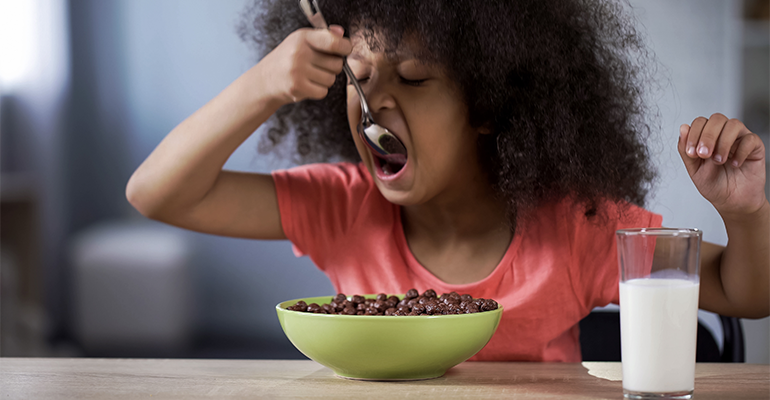
The campaign follows CSPI's investigation in November into 2,000 products sold by 28 food companies into the K-12 school market – a term used to describe schools from kindergarten to 12th grade.
It found that most school breakfast products would meet Dietary Guidelines for Americans (DGA) recommended added sugar standard from 2020 – i.e. that no more than 10% of calories come from added sugars. For more than three-fourths of the 36 food group categories fed to early school grade children (kindergarten to grade 5) and grades 9 to 12, companies were hitting the 10% target 75% of the time.
Nevertheless, for the times when companies were not DGA compliant, the CSPI stressed that some "blew past the 10% guideline".
Worst offenders: Kellogg, General Mills & Rich Products
According to CSPI's infographic, some of the companies with the lowest percentage of in-range products for the 10% DGA guideline include; Rich Products in the 'condiments and toppings' category, hitting target just 33% of the time; General Mills Convenience and Foodservice, which met the DGA target 36% of the time for kindergarten to grade 5 in the Yoghurt category; and Kellogg, which hit target 40% of the time for kindergarten to 5th graders in the 'pancakes, waffles, French toast and pastries' category.
In its latest campaign, CSPI goes on to highlight specific products such as Kellogg's twin-pack of Frosted Cinnamon Pop-Tarts Made with Whole Grain, which contains 30 grams of added sugars, "about seven teaspoons". This is more added sugars than a six-pack of Oreo cookies, the watchdog said.
Other high-in-sugar school breakfast products include a 2 oz. single-serving container of Post Holdings' Marshmallow Mateys cereal, containing 23 grams of added sugars (five and a half teaspoons), which it said is higher than a Butterfinger Bar.
General Mills' Lucky Charms cereal, meanwhile, has 19 grams of added sugars (four and a half teaspoons), "as much as you'll find in a Hostess Cupcake".
"These foods may not align with your idea of a healthy school breakfast, but companies are selling breakfast products to school meal programmes with as much or more added sugars than you’d find in some popular desserts," the watchdog stressed.
Appeal to US food makers: ‘Kids deserve a healthier start’
"Kids deserve a healthier start to their school day. CSPI’s latest campaign asks Kellogg and other companies to stop selling products high in added sugars as breakfast foods to the school meals programme."
CSPI, together with the American Heart Association and the American Public Health Association is also petitioning the United States Department of Agriculture (USDA) to set a standard for added sugars in schools meals in line with DGA guidance. No such standard is currently in place, and no response has yet been made by USDA, CSPI said.
What are other countries around the world doing?
Some other regions in the world have already implemented strict guidance to ensure school children are fed healthy diets.
The UK, for example, has instigated the School Food Regulations 2014 following campaigns led by the TV chef, Jamie Oliver.
The regulations limit the amount of foods high in sugar, fat and salt which schools can give to children on a weekly basis, with weekly caps of two portions of food that have been deep fried, batter coated or breadcrumbed, two portions of foods which include pastry, and rules that desserts, cakes and biscuits "must not contain any confectionery".
It recommends avoiding snacks with added sugar, salt and fat, and to reduce the amount of sugar used overall.
On breakfasts, it states specifically: "Porridge is a great breakfast food. Use fruit to sweeten if necessary. Otherwise, choose fortified breakfast cereals with higher fibre and low or medium sugar content. Avoid cereals with lots of added sugar and salt."
It adds: "Foods high in fat, sugar and salt are restricted or not permitted at times other than lunch."
Related news

UK Government overhauls childhood obesity strategy
21 Nov 2025
The UK Government has announced a new package of measures designed to reverse the nation’s childhood obesity epidemic following the release of statistics revealing the scale of the crisis.
Read more
How younger consumers are redefining ingredient choices and rejecting brand loyalty
18 Nov 2025
Gen Z and millennial consumers’ preferences for transparency, functionality, and purpose are “redefining the very nature of consumption itself”, says SPINS.
Read more
New UPF standard hoped to offer consumers ‘coherence and clarity’
10 Nov 2025
Ingredients companies are being urged to enter “a new era of partnership and innovation” following the launch of the industry’s first non-UPF verification scheme.
Read more
Ingredient quantities mislabelled on popular protein bars, independent tests show
5 Nov 2025
Some popular protein bars contain more fat, carbs, and/or sugars than claimed on their labels, independent nutrition testing reveals.
Read more
Does promoting protein content push up plant-based sales?
27 Oct 2025
Promoting the protein content of meat-free products is a more effective sales strategy than adding carbon labels, a study of UK bakery chain Greggs suggests.
Read more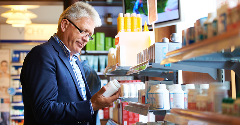
Supplement shoppers seek storytelling and science-backed suppliers
17 Oct 2025
Supplement consumers want specific health benefits that focus on prevention and personalisation, according to data from HealthFocus International.
Read more
Food fraud risks rise as brands fight economic and environmental headwinds
10 Oct 2025
Climate change, geopolitics, regulations, and demand for sustainable products are pushing up food fraud and adulteration risks, warns a world-leading food fraud expert.
Read more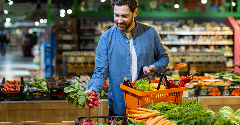
The growing appeal of nutrient-dense food claims
2 Oct 2025
Nutrient-dense claims are rising as consumers reject the “empty calories” of UPFs in favour of products that provide meaningful nutrition with every calorie, Mintel data shows.
Read more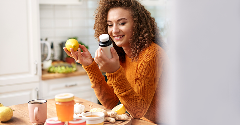
What does MAHA mean for the US nutraceutical industry?
30 Sep 2025
Industry associations have expressed mixed reactions to new policy directions on health and nutrition under the Make America Health Again (MAHA) banner.
Read more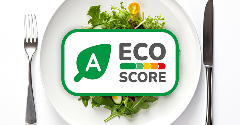
Eco-Score labels improve consumer identification of sustainable foods
22 Sep 2025
The presence of a front-of-pack Eco-Score label improves consumers' accuracy in identifying sustainable food products from 52% to 72%, a study suggests.
Read more